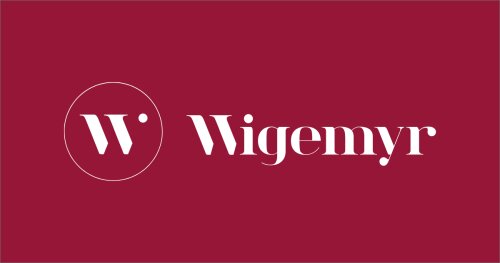Best Debt & Collection Lawyers in Kristiansand
Share your needs with us, get contacted by law firms.
Free. Takes 2 min.
List of the best lawyers in Kristiansand, Norway
About Debt & Collection Law in Kristiansand, Norway
Debt and collection law governs how debts are recovered between parties in Kristiansand and throughout Norway. This area of law establishes the rights and responsibilities of creditors and debtors, outlining formal procedures for collecting unpaid debts while ensuring the debtor's legal protections. In Kristiansand, as in the rest of Norway, strict regulations control how debt collection is performed. The law aims to balance the legitimate interests of creditors with the need to protect consumers and businesses from unfair or aggressive collection tactics.
Why You May Need a Lawyer
There are several common situations where individuals or businesses in Kristiansand may require legal assistance with debt and collection matters:
- If you are owed money and attempts to recover the debt have failed
- If you are facing a collection claim that you believe is incorrect or invalid
- If you receive threats or face aggressive collection actions from creditors or collection agencies
- If you are considering bankruptcy due to overwhelming debts
- If you want to negotiate a payment plan or settlement with creditors
- If you need to enforce a court judgment for unpaid debt
- If you are unfamiliar with the legal process for recovering debts in Norway
A lawyer can help by advising on your rights, ensuring procedural compliance, negotiating with the other party, representing your interests in court, and protecting you from unlawful collection practices.
Local Laws Overview
Debt collection in Kristiansand is governed by the Norwegian Debt Collection Act and related regulations. Here are some key aspects particularly relevant to Kristiansand:
- Debt collection agencies must be licensed by the Norwegian Financial Supervisory Authority (Finanstilsynet).
- All collection activities must respect strict ethical and legal standards, prohibiting threats or harassment.
- Debtors are entitled to receive a written demand for payment before any legal or court action is initiated.
- Excessive or unfair collection costs cannot be charged to the debtor.
- If the debt is disputed, collection proceedings must be paused until the dispute is resolved.
- Creditors can pursue claims through the local Conciliation Board (Forliksrådet) or the district court.
- Norwegian law also provides avenues for debt settlement and voluntary arrangements to help debtors manage repayment.
Frequently Asked Questions
What is the first step a creditor must take to collect a debt in Kristiansand?
A creditor must send a formal written payment reminder or warning, giving the debtor a reasonable period to pay before any further collection steps.
Can a debt collection agency contact me directly?
Yes, provided the agency is licensed and follows legal guidelines. All communication must be professional and non-threatening.
What should I do if I receive a collection notice for a debt I do not recognize?
You should immediately contact the creditor or collection agency in writing to dispute the claim and request documentation proving the debt.
Are there limits on collection fees or interest rates in Norway?
Yes, the law sets maximum rates for both collection fees and interest, preventing unreasonable charges to the debtor.
How can I resolve a debt dispute without going to court?
Both parties can engage in negotiations or mediation. Norway's Conciliation Board offers a local, low-threshold solution for resolving debt disputes.
Can a creditor take my property or garnish my wages?
A creditor must first obtain a legally enforceable judgment. Then, enforcement authorities may seize assets or garnish wages under strict rules.
What rights do I have if I am being harassed by a debt collector?
You are protected by law from harassment, threats, or persistent unwarranted contact. You may report any misconduct to Finanstilsynet or seek legal advice.
What happens if I cannot pay my debts at all?
You may consider applying for a voluntary debt settlement (gjeldsordning) through the local enforcement authority. A lawyer can advise on eligibility and procedure.
How long can a debt be collected in Norway?
Generally, the statute of limitations for ordinary debts is three years, though this can be prolonged if the creditor takes certain actions such as sending reminders or initiating legal proceedings.
Do I need a lawyer to go to the Conciliation Board (Forliksrådet)?
Representation by a lawyer is not mandatory, but a lawyer can help prepare your case, especially if the matter is complex or involves large sums.
Additional Resources
Several organizations and agencies can assist individuals and businesses facing debt and collection issues in Kristiansand:
- The Norwegian Financial Supervisory Authority (Finanstilsynet) - Regulates debt collection agencies
- Kristiansand Conciliation Board (Forliksrådet) - Handles civil mediation and disputes
- The Norwegian Consumer Council (Forbrukerrådet) - Provides consumer guidance and dispute resolution
- Local legal aid offices (Fri rettshjelp) - Offer free or subsidized legal services for those who qualify
- The National Enforcement Agency (Namsfogden) - Manages debt enforcement and settlements
Next Steps
If you are dealing with debt or collection matters in Kristiansand, take the following steps:
- Gather all relevant documents including contracts, correspondence, and statements related to the debt.
- Contact the creditor or collection agency in writing to clarify, negotiate, or dispute the claim if appropriate.
- If the matter is unresolved or you feel overwhelmed, schedule a consultation with a local debt and collection lawyer.
- Consider seeking help from local consumer organizations or the Conciliation Board for mediation.
- Be aware of your rights and obligations under Norwegian law, and do not ignore legal notices or court summons.
Expert legal advice can make a significant difference in protecting your rights and reaching a fair resolution. Do not hesitate to seek help if you are unsure how to proceed.
Lawzana helps you find the best lawyers and law firms in Kristiansand through a curated and pre-screened list of qualified legal professionals. Our platform offers rankings and detailed profiles of attorneys and law firms, allowing you to compare based on practice areas, including Debt & Collection, experience, and client feedback.
Each profile includes a description of the firm's areas of practice, client reviews, team members and partners, year of establishment, spoken languages, office locations, contact information, social media presence, and any published articles or resources. Most firms on our platform speak English and are experienced in both local and international legal matters.
Get a quote from top-rated law firms in Kristiansand, Norway — quickly, securely, and without unnecessary hassle.
Disclaimer:
The information provided on this page is for general informational purposes only and does not constitute legal advice. While we strive to ensure the accuracy and relevance of the content, legal information may change over time, and interpretations of the law can vary. You should always consult with a qualified legal professional for advice specific to your situation.
We disclaim all liability for actions taken or not taken based on the content of this page. If you believe any information is incorrect or outdated, please contact us, and we will review and update it where appropriate.









